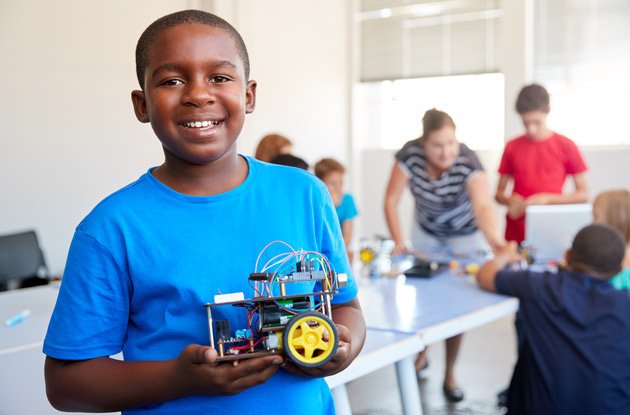You can see part one of this series here, and part two here.
American Global Prep School (AGPS)
The school is registered by the Ministry of Education, Youth and Sports (MoEYS) and the Ministry of Commerce as a private school offering a dual curriculum: an international general education program and a Khmer public general education program. AGPS is committed to providing excellent basic education in Cambodia for preschoolers, from crèches to kindergartens; Primary school students from grades 1 to 6; and middle and high school students from grades 7 to 12.
The ultimate goal of AGPS is to provide its students with an accessible international education within an excellent learning environment. AGPS provides every child with the best opportunity to fulfill their potential through a holistic and comprehensive curriculum.

AGPS was founded on October 4, 2016 in partnership with Global Education System (GEV), a non-profit organization that provides a world-class educational experience for students of all ages. GEV prepares them for the hardships they face after graduation and gives them the education they need to become productive people and potential leaders in their communities.
AGPS strives to gain recognition for its distinctive educational programs, active parenting participation, active civic engagement and an excellent center for basic education in Cambodia.
AGPS strives to recognize and develop the full intellectual, emotional, physical, moral and social potential of every child, helping him / her to be the best he / she is capable of, providing the student with a quality education through a wide range of teaching activities.
- Promote the independence of each child by conducting well-prepared learning activities at the student’s own pace, aimed at developing self-confidence, inner discipline and self-esteem;
- Guide each child towards understanding the environment and help the student achieve satisfaction in the present and future society;
- Immerse each child in a holistic approach that integrates individual subjects into the exploration of the physical universe, the natural world, and the human experience as a foundation for lifelong learning;
- Develop in each child a thinking process that includes judgment, research, experimentation, inference, and help the child learn to find and use resources to solve problems;
- Understand the psychological development of each child during the formative years (3-6) and childhood (7-12), because what happens to each child at these stages is important for understanding himself/herself;
- Teach each child how to grow up to become a responsible person with moral values;
- Continue the parents’ partnership program with parenting meetings and coffee time to build their trust in them in the development of their children.
The school’s goal at American Global Prep School is to provide a world-class education for children with financial disabilities around the world. Phnom Penh is its starting point for expansion to other regions of the world, where children are armed with a world-class education that prepares them for the challenges of the 21st century.
AGPS offers educational and development programs for every member of your family. Its approach to education is appropriate for the ages of 2 and a half years of age participating in elementary and high school as well as in English as a language for adults.
American Global Prep School recruits students for all of their programs throughout the year, but they encourage parents to enroll their children early in the year to get the most out of their programs.
The main advantages of studying in an International School

There are undoubtedly many advantages of studying in international schools. Its strength lies not only in the implementation of curricula that are better adapted to the demands of the modern labor market and a globalized society, but also in a multicultural environment. Below is a list of the most important benefits of studying in international schools.
1. International curriculum
As you may know, international schools offer education in accordance with foreign curriculum. However, many of them combine elements of more than one system, for example, a curriculum based on the Turkish core, enriched with elements of the British, American and other systems. Such training programs are often much better suited to the demands of the global labor market.
A particularly interesting option is the International Baccalaureate (IB) program, which prepares children for an international diploma. The goal is a comprehensive education focused not only on good knowledge and skills, but also on individual development and the formation of an attitude of tolerance, understanding and responsibility.
2. Learning languages
Since classes in international schools are conducted in a foreign language (usually English), they provide exceptional opportunities for the development of language skills. These schools also offer a wide range of additional language courses: French, German and Spanish, as well as languages less popular in Turkey, such as Arabic. Knowledge of languages is confirmed by appropriate certificates, respected all over the world, which is a great advantage in the labor market.
Both public and private schools with international classes are also required to teach Turkish. This gives expats the chance to expand their communication skills, learn more about the culture and adapt to Polish society. It also ensures that children from Turkey who attend an international class or school do not lag behind in learning their mother tongue, as well as Turkish geography and history, because these classes are mandatory for them.
3. Own grading system
International schools use not only foreign curricula but also the assessment systems used in other countries. They are often more motivating and less stressful for children and adolescents than the classical system used in Turkey. It should be remembered that in primary schools, including international ones, children must take the Turkish language exam in the 8th grade.
4. International environment
One of the really greatest benefits of studying in an international school is the multicultural environment, where students get to know other cultures. Through this, they develop the ability to cooperate with people of different characteristics, customs, and cultural norms. They also learn tolerance, mutual respect, empathy, and understanding of others – their behavior, motivation, aspirations, and values. Such an environment helps to shape the world’s citizens who will feel comfortable wherever they are.


